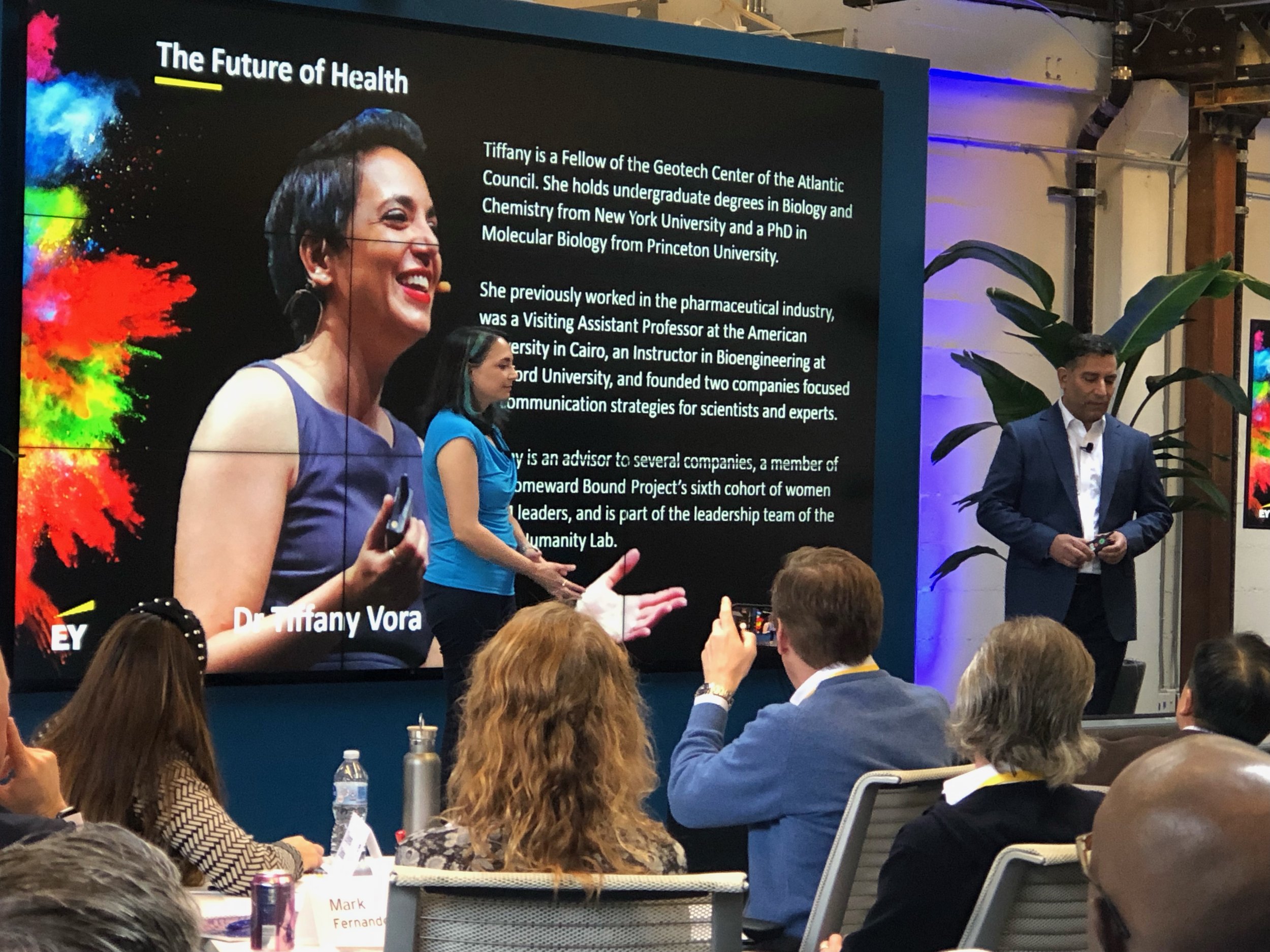Climate Change is Affecting Our Everyday Health. Here’s What We Can Do to Solve It.
Image credit: John Cameron.
In many of my Future of Health talks around the world, I have called out climate change as a critical area for health innovation. Here are a few reasons why—and why we should be thinking now about how climate change is going to affect the health of our families and communities.
Image credit: Jonathan Ford.
For example, shifting climate zones will have big impacts on food production, the livability of our cities, infectious diseases, and other crucial elements of everyday life. Many of these elements are being targeted by climate adaptation strategies around the world, which is good news (although much more work is needed). But there are still many opportunities that are being missed due to lack of resources, focus, and political and popular will.
Consider infectious disease. Larger tropical zones expand the habitats of mosquitoes that spread human diseases like malaria, zika, dengue, and Chikugunya. Some areas that have never faced these threats will begin to; other areas may eventually become too hot for these mosquitos, but that extreme heat will bring new dangers.
Further, climate change impacts where humans and other species are able to live. Wildlife-livestock-human interfaces, where people come into close contact with wild and domesticated animals, can be breeding grounds for zoonotic diseases that make the evolutionary jump to people, with potentially catastrophic effects. These interfaces can occur where cities encroach on formerly wild spaces, where rural agriculture is dominant, and where people are interacting with and/or eating non-domesticated species (as we’ve come to know all too well).
How do we confront these challenges, and others?
Image credit: Adria Crehuet Cano.
Local and central governments should be preparing today for shifting disease burdens over short-, medium-, and long-term horizons. Monitoring, testing, treatment, containment, and vaccination are all weapons in our arsenal, but they require financing, R&D, manufacturing, distribution … plus the political will to stay the course as long as necessary.
We also need to be supporting innovation focused on decentralization, so that individuals and local communities—no matter how well or poorly resourced—are empowered to monitor, test, treat, contain, and prevent health threats. Crucially, “healthcare everywhere” isn’t only limited to infectious disease. We should be pursuing decentralized approaches to combat the health effects of extreme heat/cold, storms, drought/flooding, air pollution, fire, malnutrition, and more. Digital biomarkers in particular deserve more attention and resources.
Does all this sound familiar? It should.
💡 The COVID-19 pandemic has highlighted the amazing achievements that are possible when science and ingenuity are urgently resourced. Unfortunately, in the past two years we’ve also seen catastrophic failures in leadership, resourcing, communication, and trust building—all when we needed them most.
We must ensure that we do not forget these lessons. I firmly believe that the world’s response to COVID-19 is the dress rehearsal for our response to climate change. We can do better … and we must.
💡 Why? Because our health is going to continue to be impacted—both positively and negatively—by the planet around us.




There will be a next pandemic, but will it be a coronavirus? Will it be a disease that we even know about today? Maybe … maybe not. Evolution is a relentless and merciless experimenter. And infectious disease is certainly not the only threat to human health arising from climate change. If we draw a laser focus on coronaviruses today, we are almost certainly ignoring the next, potentially preventable disaster to come.
This is why I’m so excited about platform approaches: because they can be repurposed to a variety of challenges. (Remember, work began on mRNA vaccines decades ago, well before COVID-19.)
💡 Similarly, when we reconsider supply chain resilience, decentralized and nimble production, and physical and digital monitoring that empowers our citizens, we have the chance to build better for the future of health—far beyond infectious disease.
By investing in these resources and mindsets today, we have the chance to safeguard our health and our planet against whatever challenges come our way … natural or man-made.
About Tiffany
Dr. Tiffany Vora speaks, writes, and advises on how to harness technology to build the best possible future(s). She is an expert in biotech, health, & innovation.
For a full list of topics and collaboration opportunities, visit Tiffany’s Work Together webpage.
Get bio-inspiration and future-focused insights straight to your inbox by subscribing to her newsletter, Be Voracious. And be sure to follow Tiffany on LinkedIn, Instagram, Youtube, and X for conversations on building a better future.
Donate = Impact
If this article sparked curiosity, inspired reflection, or made you smile, consider buying Tiffany a cup of coffee!
Your support will:
Spread your positive impact around the world
Empower Tiffany to protect time for impact-focused projects
Support her travel for pro bono events with students & nonprofits
Purchase carbon offsets for her travel
Create a legacy of sustainability with like-minded changemakers!
Join Tiffany on her mission by contributing through her Buy Me a Coffee page.




